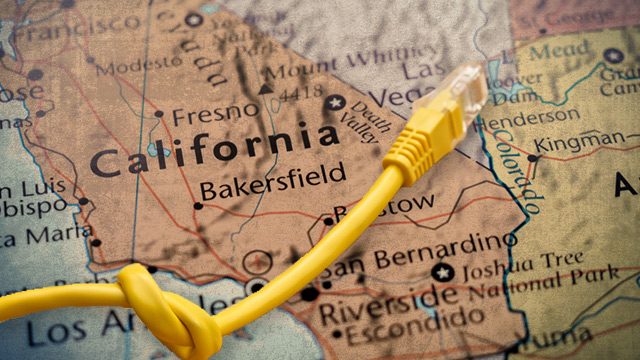SUMMARY
This is AI generated summarization, which may have errors. For context, always refer to the full article.

WASHINGTON, DC, USA – The US Justice Department on Sunday, September 30, sued California to force it to abandon a law, passed earlier in the day, to protect “net neutrality” aimed at requiring all online data to be treated equally.
Rules governing online access have undergone numerous court challenges and regulatory moves over the past decade, and in December the Federal Communications Commission voted 3-2 along party lines to reverse a 2015 order which established net neutrality.
On Sunday California Governor Jerry Brown signed a law that re-established net neutrality in his state, the country’s largest and wealthiest.
The law also marks the latest challenge between Brown’s administration and President Donald Trump’s Republicans, who have already clashed over environmental and immigration regulations.
“Under the Constitution, states do not regulate interstate commerce – the federal government does. Once again the California legislature has enacted an extreme and illegal state law attempting to frustrate federal policy,” Attorney General Jeff Sessions said in a statement announcing the lawsuit.
“We are confident that we will prevail in this case — because the facts are on our side,” Sessions said.
FCC Chairman Ajit Pai described California’s law as illegal and bad for consumers.
He has previously argued that ending net neutrality would give the private sector “greater incentives to invest” in the new generation of super-fast 5G wireless networks and ensure the United States keeps its technological edge over other nations.
Net neutrality prohibits the blocking of sites or services for competitive reasons, and bans “fast” and “slow” lanes for different kinds of online traffic.
Activists have protested the changes, saying dominant broadband providers could favor their own services, hinder those of rivals and charge more for certain kinds of access.
Internet giants Amazon, Facebook and Google are among the supporters of net neutrality. (READ: Net neutrality and why you should care about it)
A number of other US states would also like to implement their own rules to protect net neutrality, although the FCC’s decision clearly forbids such moves.
As a result, the Trump administration wants to make an example of California.
USTelecom, which represents companies in the broadband sector, said it supports net neutrality but disagreed with the California law.
“Rather than 50 states stepping in with their own conflicting open internet solutions, we need Congress to step up with a national framework for the whole internet ecosystem and resolve this issue once and for all,” the industry group said. – Rappler.com
Add a comment
How does this make you feel?
There are no comments yet. Add your comment to start the conversation.